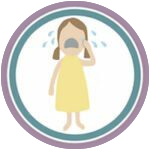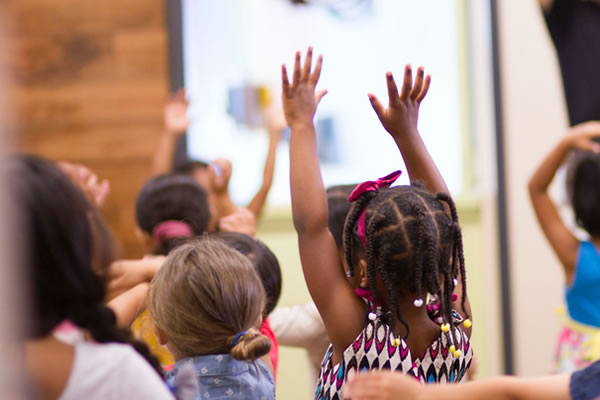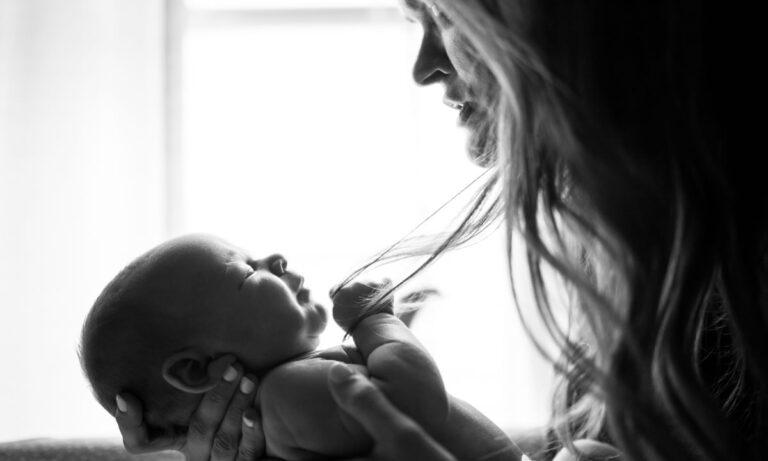Question: My unschooled six-year-old daughter has just started to “love” another six-year-old boy. His mom has caught them kissing recently and has told her son that he’s not to do this anymore for moral reasons. I explained to my daughter that although there’s nothing wrong with it, she should respect their rules and not kiss him.
Soon after this, I found them laying on top of each other embracing on the floor. I mentioned to both that I don’t think his mom would approve so they should not do it again. Could you please discuss what behaviors one should expect/allow at different ages of sexual development as well as what should raise a red flag? Also, do you have any opinions as to what we should discuss with our children and when?
Answer: Smile and enjoy your daughter. Children’s innocent experiments with romantic behaviors are not really romantic. They are not any different than pretending to be a fireman or a dancer. They like to try things on. Your daughter likes her friend and believes that “this is the love that comes with kissing.”
Another mother told me that when she was six, she had a boyfriend for a whole year. This was in a boarding school and they not only hugged, walked hand in hand, and kissed but also decided that they would get married. Well, no; this boy did not grow up to be the father of her children and the friendship ended when she moved away from that school at the end of the year without any emotional difficulty. She just moved on.
It is not your daughter’s responsibility to comply with the boy’s mother’s rules when the mother is not even present. Yet, it is kind of you to point out to your daughter that the mother has a problem with their kissing and to reassure her that you don’t. I also appreciate your respect for that mother’s preferences.
I am wondering, in the future, what would happen if you didn’t intervene, not even by suggesting to accommodate the other mother’s rules. I think whatever unfolds would then be authentic and a direct experience and just as respectful.
Maybe the boy’s mother would never see them because they would learn to avoid kissing in her presence and then nothing would happen. Or, if his mother does see them, your daughter would hear directly from her and, in her innocence, ask “why?” This would create a wonderful opening for the boy and for his mother. The mother may think, “Maybe it’s fine then.” It could be that she is being protective of your daughter.
You can also discuss it with the mother directly. She could be inspired by your calm. Or, the two of you may decide to speak to me on the phone to sort things out. She could be feeling unsure of herself, or worried that you would disapprove of the kissing, especially since your child is female. If she must have her way due to spiritual beliefs, honoring her wish can be reached through open and honest communication.
When your daughter complies with his mom’s rules because you suggested them, these restrictions are seen as endorsed by you. Seeing kissing as something wrong and forbidden is the root of much sexual and affectional dysfunction in our society. The children’s experience, when allowed to unfold freely, is an opening for connection and learning about people’s differences.
Awareness about body autonomy
As long as a child is choosing freely to be where she is and do what she is doing and as long as both children are playing as equals and having a say and a good time, there is no reason to be concerned.
The time to be alert is when the powers are not equal; if an adult or an older kid is involved, or when a child is imposing on another (sexually or otherwise.) A child being bossy about exploring another’s body has most likely been previously overpowered by someone else. Know all the members of the family where your child plays, or simply be present yourself. If you notice anxiety after your child plays with someone, ask open questions and make it safe for her to talk.
However, even between different ages, some children are curious about bodies and gender differences. They explore innocently and harmlessly.
Masturbation
Many boys and girls play with their genitals. They don’t think of it as masturbation nor associate pleasure with images of the other gender or of anything at all. They simply discover that touching themselves is fun. There is absolutely nothing wrong with any of it and turning it into a “theme” can only create confusion. Children discover the fun on their own and often educate each other.
When one of our sons was six, he enjoyed (as is typical for that age) playing with his penis most of the day. Since we lived on an island and in a country setting with a supportive community, he was always free to enjoy himself. One day we were going to a show on the mainland. We had to be on the ferry and then in the theater. I told my son that when we are in public on the ferry and in the city, it would be best if he didn’t play with his penis, as it is something one does in private or within the family. I forgot all about it until, at our host’s house he came to me and said, “Mom, NOW can I play with my penis?”
When the parent approves of pleasure and has a benign attitude about body pleasure, the child takes it in that same healthy way.
Protecting your child’s body autonomy
The best protection against bodily mistreatment is self-esteem and freedom of self-expression. I recall hearing one of my boys scream so loud I rushed to the playroom alarmed. When I entered the room I saw nothing. My aunt was playing with the boys happily. I asked, “what happened?” She said, “I just tried to pick him up to give him a ride.”
I felt so happy to know that at age three, my child has zero tolerance for bodily imposition. “Well, ask his permission next time,” I said. “Obviously,” my aunt responded, “I sure learned my lesson.” Such assertive protection of one’s body comes from respecting the child’s preferences from day one. Avoid giving your daughter any indication that her inner sense of herself is not to be trusted. Instead, always respect the choices she makes about her own body and autonomy.
Here are a few body-related examples that tell the child to follow others and ignore her inner voice:
“You are tired,” when she would rather stay up.
“You are hungry,” when she would rather play.
“There is nothing to be afraid of,” when she is scared.
“Play with your friend, why are you sitting with me?” When she chooses to watch and not play.
“You can sleep in your own bed,” when she wants to cuddle for the night in your bed.
“Kiss grandma goodbye,” when it is obviously not what she wants to do… etc.
In addition, be respectful of your child. Do not overpower her body, restrict or tickle. Respect her when you wash her when you hug, kiss, and dress her. She is learning to honor her own body by experiencing herself as honored.
The second aspect of safety is to know that your child will tell you right away if something confusing happens. In my book, Raising Our Children, Raising Ourselves, I dedicated a chapter to this crucial issue of making it safe for a child to express herself fully. When feeling safe to share feelings and experiences, your child is likely to bring to your attention any sense of discomfort with another and will also heal quickly if something does happen.
How much should you share about sex and at what age?
How much should you talk to your child about trees? About chickens? About hair and eyes and food? You can tell your child about sex any time she asks or when the subject is relevant.
Respond to her in the same way you do when she asks about the rain. When a young child asks why it rains, you don’t give a lecture about air pressure. You say, “It rains so that the flowers and animals can drink,” or some other single-phrase explanation of how it occurs. The child may or may not ask more questions. In the same way, you can speak of sexuality, intercourse, and how babies are conceived. Without burdening the child with a biology class, give her the facts.
When I was pregnant with my third baby, and my three-year-old child asked how the baby came into my belly, I simply told him how it happened. I even found a book with explicit drawings of intercourse, pregnancy, and birth. The book said that when mom and dad kiss and feel very loving, dad puts his penis in mom’s vagina and it feels very wonderful and then sperm comes out of his penis, etc. My tone was not different than when explaining why the sun sets.
In addition, be free with nudity, take showers together, and hug and kiss joyfully and respectfully. There is no need to distinguish sex as different than other subjects. It is another part of the wonder of life. It brings much pleasure and is done privately – but not secretly.
If your child happens to see sexuality in real life, on TV, or in pictures, keep a benign attitude and she will emulate your natural ease. There is really nothing to make a fuss about. We eat, we breathe, we sleep, we hug, we kiss, we mate, we give birth and so it goes. It is called being alive in a body. And, when your child wants to practice with her friend, it is her wonder-filled path.
©Copyright Naomi Aldort










